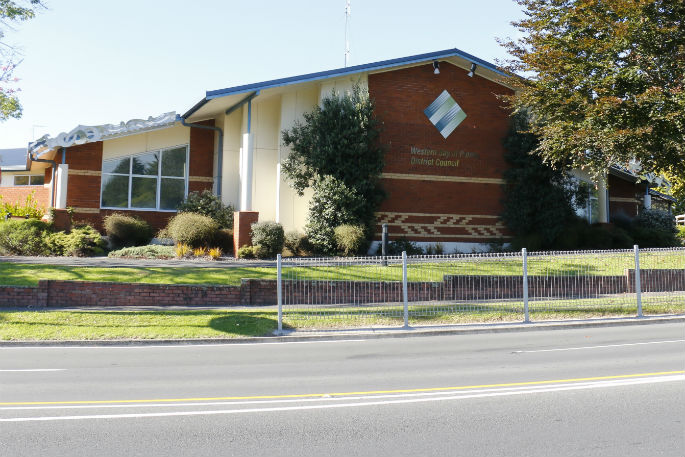The Western Bay council is to vote this week on whether it will introduce Maori ward seats to the district.
The decision on whether to establish Maori wards for the 2019 local government elections will be made on Tuesday November 21 at council beginning 12.30pm.
Community relationships manager for the Western Bay of Plenty District council Frank Begley says the council is expecting a strong presence from iwi and others for the decision.
The Western Bay vote comes the week after the Whakatane District Council voted six to five in favour of supporting the introduction of one or more Maori wards.
The Bay of Plenty Regional council has three Maori constituencies since 2001, the result of a request by Maori for direct representation. It took a law change and strong public support.
Tauranga City Councillors last knocked back a Maori request for council representation in November 2014, after being requested to do so by the city council's Tangata Whenua Committee. The next request will be made in 2020.
At the time Tauranga Mayor Stuart Crosby said current good relations were a reason why there shouldn't be a Maori seat, and he believed it would damage the current relationship and represent a 'big step backwards”.
Councils are required under the Local Government Act to establish and maintain processes providing opportunities for Maori to contribute to the council's decision making processes.
2014 was also the year then New Plymouth mayor Andrew Judd tried to introduce a Maori ward seat in New Plymouth. It created a community backlash and Andrew retired from politics in 2016.
Andrew's call for a Maori ward was supported by then Bay of Plenty Regional Councillor Doug Owens who claims opposition to them is ‘political prejudice'.
In an open letter published at the time he says Maori wards had become an issue of political prejudice as parties vie for the ‘prejudice vote against Maori' and their declared and accepted right to self-determination, as a culture and an indigenous people.
'The essential advantage of direct representation via a ward system is the pragmatic solution to a profound political problem, that being an indifferent electorate having no interest in Maori and no guaranteed election of Maori and therefore continued poor communication and misunderstanding,” says Doug.
On the BOP Regional Council the three Maori wards have given way to greater tolerance and understanding of Maori issues and these relationships have grown and deepened as a result of Maori representation at the top table, says Doug.
The lack of Maori or other city ethnicities on Tauranga City council is blamed on the ward system imposed by the Local Government Commission.
On the current 11 member council, ward councillors outnumber those voted in at large, 6:5. Six ward councillors, four at-large councillors and one mayor. It means each ratepayer can vote for only the four at large seats and the two seats in each ward. There are four council seats that each voter cannot cast a vote for.
'At large council seats represent a golden opportunity for Maori and other minority groups to put up suitable candidates for election with a good chance of success,” says Mount Maunganui resident Rob Paterson. The former lawyer was speaking on his appeal against the ward system in April 2016.
'Good candidates would stand a very good chance of being elected if all the seats were at large,” says Rob. 'This would also address the calls for race based representation or race based electoral seats on councils.”
After this week's vote Whakatane District Mayor Tony Bonne says the result is testament to the importance of fostering strong and meaningful relationships with Maori across the district and ensuring Te Ao Maori is recognised and supported at the council table.
'I have had the opportunity and privilege in my role as mayor to engage with Maori on a number of partnerships, and I see this as a continuation of the work we have been doing to foster growth and positive relationships within our rohe so we can move forward together.”



5 comments
It is Inevitable
Posted on 20-11-2017 08:40 | By Maryfaith
They probably will - seems councils bend over backwards to accommodate the wishes of the small minority. If a maori had the credentials to be a councillor - they should stand on their own merits - not their colour. Apartheid!
equality is a corner-stone of democracy
Posted on 20-11-2017 09:39 | By Captain Sensible
I heard that some Zimbabwean refugees who fled to NZ are seriously thinking of going back there. Apparently the Zimbabwean definition of democracy is closer to the mark than ours.
Democracy
Posted on 20-11-2017 13:32 | By rastus
Many kiwi's protested against apartheid and according to a recent talkback on the subject many now regrett the stance they took. Apartheid is institutionalized racism of the worst possible kind and should be stopped in its tracks because once instituted is hard to repeal. When I first came to Tauranga in the 50s we had an excellent Maori councillor in Vic Smith who was well supported by all and was there because he was a competent councilor at no time that I am aware did he ever trade on his skin colour
Democracy?
Posted on 20-11-2017 16:03 | By jaydeegee
Presume you believe Natzism is democratic Kapitan?
Regional referendum?
Posted on 21-11-2017 10:39 | By stokey
I have mixed views on this issue. Is a race based system relevant today ? Are competent Maori candidates unable to get selected because of their race? Is there another perspective worth considering that takes into account Maori values? Do the number of Maori representatives proposed fairly reflect the total number of people in the electorate? Would a regional referendum be the most democratic way forward?
Leave a Comment
You must be logged in to make a comment.